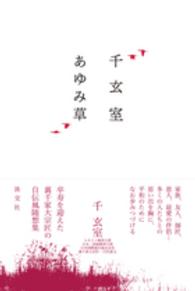- ホーム
- > 洋書
- > 英文書
- > Psychology
Full Description
This accessible and meticulously researched book is a philosophical study dedicated to the psychoanalytic dimension of the uncanny and the discussions on monstrosity as fundamental concepts to address contemporary experiences of anguish, desire, suffering and alienation.
Examining the uncanny in Freud and Lacan, the book explores its emergence through psychoanalysis and aesthetics, as well as its meta-psychological implications. Chapters explore the history and connection between the uncanny and monstrosity in both philosophy and psychoanalysis, following on from the construction of Freud's 'The Uncanny' in 1919, and focusing on these concepts through different perspectives, such as Marxism. Finally, the book argues towards the importance of a monstrous grammar (re)introduced to psychoanalysis, in order to sustain a specific clinical listening of our times.
Offering new insights and arguments on these fascinating concepts, this book will be of interest to philosophers, psychoanalysts and psychologists, as well as also appealing to professionals and students in the worlds of arts, film and history.
Contents
Introduction 1. On philosophy and psychoanalysis: An (uncanny) vompossibility 2. Monstrosity in dispute: Monsters in history and its implications to thinking 3. The uncanniness of monstrosity (or is it the other way around?): The contours towards another grammar between philosophy and psychoanalysis 4. Monstrosity and impasses of Fetishism: A Marxist approach (or, a debate towards "monstrous materialism") 5. A monstrous grammar for psychoanalysis Conclusion







